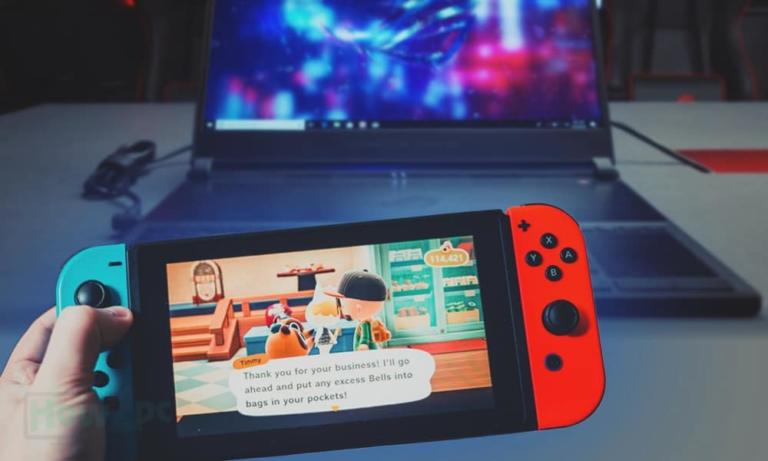In the whirlwind of college life, video games often serve as a cherished oasis of entertainment and relief. They offer a captivating diversion from the academic grind, providing a fun outlet after a day filled with lectures, study sessions, and coursework. Yet, it’s also crucial to consider the substantial influence that such a pastime can have on a student’s performance and overall wellness.
Amidst classes and rigorous study schedules, many college students make space for immersive gaming experiences. It’s not unheard of for students to even employ the assistance of online essay writers who can write my paper for me, ensuring they have more free time for gaming. This has given rise to debates about the possible consequences of gaming on academic performance and overall well-being. But are these concerns justified? Let’s delve deeper to find out.
The Influence of Video Games on Academic Performance
Numerous studies have delved into the intricate connection between video gaming and scholastic success. Certain studies suggest that intense gaming can disrupt a student’s academic performance, causing a dip in grades and overall academic engagement.
Conversely, others posit that video games can cultivate a host of cognitive skills. They can foster problem-solving abilities, strategic thinking and enhance hand-eye coordination. Additionally, educational video games can enhance classroom learning, strengthen understanding of concepts, and make studying more interactive and enjoyable.
The Role of Video Games in Student Well-Being
The relationship between video games and student wellness is intricate and multifaceted. Some studies suggest that excessive gaming can contribute to physical health problems, like eye strain and sedentary behaviors. Excessive gaming may also lead to adverse psychological consequences, such as heightened stress and anxiety levels.
However, video games can also contribute positively to a student’s well-being. They can function as a stress buster, aid relaxation, and facilitate social interaction, particularly in multiplayer games. Video games can also foster a sense of accomplishment and boost self-esteem when players overcome challenging levels or missions.
Developing Life Skills Through Gaming
Gaming isn’t solely about having fun; it can also provide a unique platform to develop important life skills. Many games require strategic thinking and planning, effectively translating into real-world problem-solving skills. Moreover, multiplayer games often necessitate cooperative efforts and teamwork, providing students with the opportunity to bolster their social skills.
Additionally, video games can teach resilience and persistence. The trial-and-error nature of most games can help students understand that failure isn’t the end but rather an opportunity to learn and improve. This approach can be applied to real-world scenarios, like dealing with difficult assignments or learning complex topics.
Gaming and Emotional Well-Being
Research has also explored the impact of video games on emotional well-being. Video games often involve storylines that can trigger a wide range of emotions. From the joy of completing a mission to the sorrow of a character’s death, these experiences can help students explore and understand their emotions.
Moreover, video games can provide a safe space to express and control emotions. They can also serve as an emotional outlet, helping students deal with stress, frustration, and anxiety. This therapeutic aspect of gaming is now being recognized more widely, with certain games being designed specifically to promote mental health.
Impact of Gaming Genres
The influence of video games on students can also hinge on the nature of the games they engage with. For instance, educational games can amplify learning and boost memory and cognitive skills. In contrast, violent video games have been associated with aggressive behavior and diminished empathy. Strategy games can bolster critical thinking, while multiplayer games can foster social skills.
Nevertheless, it’s crucial to remember that these outcomes are not predetermined or absolute. The effects can fluctuate based on variables like the time spent gaming, the gamer’s personality, and their overall lifestyle.
Balancing Video Games and Academics
The act of balancing video games and scholastic obligations is critical. Here are some valuable tips to assist you:
- Establish specific time frames for gaming sessions.
- Ensure academic tasks take precedence over gaming.
- Treat video gaming as a reward for accomplishing study-related tasks.
- Play educational games that are relevant to your course of study.
- Incorporate regular intervals during your gaming to prevent exhaustion.
- Adopt a wholesome lifestyle, inclusive of routine exercise and a balanced diet, to counteract the physical inactivity associated with gaming.
- Restrict gaming sessions close to bedtime to promote quality sleep.
- Opt for games that facilitate relaxation and stress relief, avoiding those that may trigger anxiety.
Preserving a suitable balance between academics and gaming extends beyond mere time management. It also encompasses making conscious decisions about the type of games you engage in and ensuring your gaming habits do not adversely affect your health or disturb your sleep routines.
The Importance of Gaming Responsibly
The principle of responsible gaming transcends the simple balancing of gaming and academics. It involves understanding the risks that come with excessive gaming and adopting proactive measures to lessen them. As a responsible gamer, it’s crucial to discern when gaming begins to impede your daily tasks, including academic obligations. If gaming starts to result in skipped classes, postponed assignments, or a neglected social life, it might be a signal to reassess your gaming habits.
Moreover, gaming responsibly implies recognizing and tackling the physical health risks associated with extended gaming sessions. These can encompass eye strain, poor posture, and inactive behavior. Regular breaks, maintaining correct posture, and integrating physical activity into your daily routine are straightforward yet effective ways to support physical health while indulging in your favorite video games. Keep in mind that gaming should enrich your life, not detract from it. A balanced approach to gaming can enable you to revel in the benefits while mitigating potential downsides.
Conclusion
The influence of video games on college students is multi-layered, influencing academic outcomes, cognitive skills, and emotional health. It’s clear that while gaming can provide numerous benefits, it’s vital for students to monitor their gaming habits to ensure they don’t negatively affect their academic performance or overall health. Strategies such as setting time limits, prioritizing academic tasks, and leading a healthy lifestyle can assist in finding a balance between gaming and academics.
Lastly, while this article emphasizes the potential impacts of gaming on students, each student’s experience is unique, shaped by their personal circumstances, inclinations, and resilience. If you’re grappling with managing your gaming habits and academic responsibilities, the best paper writing services can offer some reprieve, allowing you to appreciate gaming while keeping up with your academic pursuits. Bear in mind the objective is to maintain a balance that enriches your college experience.








